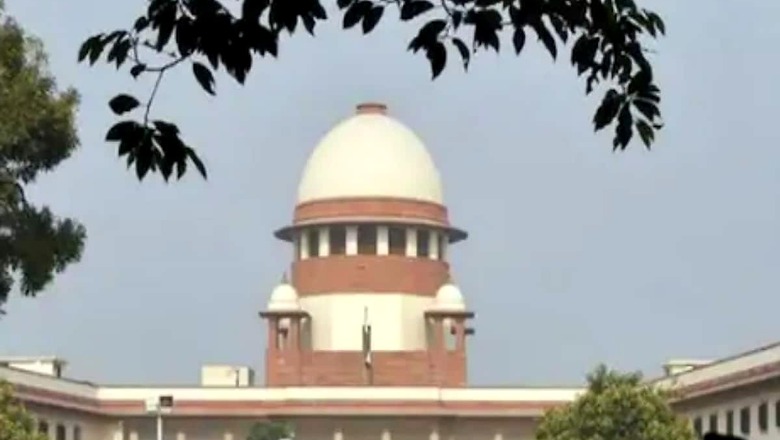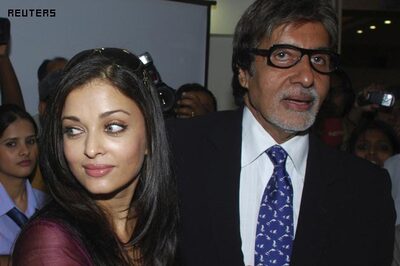
views
The Supreme Court Friday agreed to hear a plea which has sought declaring as cruel and illegal the use of artificial reproduction technique (ART) performed on animals without any proven bio-medical need. A bench headed by Chief Justice SA Bobde issued notices to the Centre and others, including Animal Welfare Board of India and National Biodiversity Authority, seeking their responses on the plea against cruelty meted out to animals during the ART claiming it is unconstitutional.
Issue notice, the bench, also comprising Justices AS Bopanna and V Ramasubramanian, said. The plea has alleged that ART performed on livestock/animals are violative of some provisions of the Prevention of Cruelty to Animal Act 1960, the Biological Diversity Act 2002, the Environment (Protection) Act 1986, and also the Constitution which mandates protection of environment and nature along with animals.
Reproduction is a basic natural and biological need as well as urge of all living beings, save and except monosexual organisms. No authority can arbitrarily trample or destroy the rights or needs of any living being including animals by means of policy or practice, which in itself against nature and natural principles, said the plea, filed by Madurai-based S Venkatesh. Bypassing and preventing the natural mating and artificially reproducing as a principle/policy is by itself cruel; not to mention the cruelty or pain inflicted by the artificial process and methods of reproduction in animals, it said.
It has also sought an interim direction that ART on livestock/animals, including but not limited to collection and extraction of semen from bulls and male animals, be stayed pending disposal of the petition. The plea said the Constitution has explicitly recognized the value of lives and welfare of animals, including when they are being used for meat consumption, and mandates that all living beings be treated with compassion and respect.
As per the National Dairy Development Board data, the number of artificial insemination performed in dairy animals was over 73 million in 2017-18 alone, it said. The petitioner has claimed that in the Budget speech 2020-2021, the Finance Minister stated that coverage of artificial insemination shall be increased from the present 30 per cent to 70 per cent.
Referring to the December last year written reply in Lok Sabha by Minister of State for Fisheries, Animal Husbandry and Dairying, the plea has claimed that in the last five year the government has incurred expenditure of over Rs 1,200 crore through Rashtriya Gokul Mission’ towards ART, including artificial insemination. ARTs contributes to environmental pollution; items and tools, including single use items, that are needed for ART are made of plastics, and similar eco unfriendly materials. The ART process, including preparation and storage, has couple dozen or so steps many of which are carbon foot print intensive and thus contribute to global warming and eco degradation, it said.
Referring to the alleged ill-effects of ART, the plea said in the US, it has led to extinction of variation and diversity in genetic resources in cattle which may have potentially led to increase in unhealthy and non-nutritious dairy products being produced. It said there had been a steep decline in the population of desi cattle’ in India, some of them are already extinct. While referring to the statistics from livestock census, it said that in the last three decades the population of desi bulls has decreased by a whopping 55 per cent and in the same period, population of desi cow has decreased from 90 per cent to 67 per cent.
Mating is a biological need and a natural process and thus interfering and encourage ART is cruelty meted to animals and in addition would adversely impact, among others things, the eco-system in mid and long run, and the impact could be irreversible, the plea said, adding that it is the duty of state to protect the rights of animals and safeguard their welfare. It alleged that indiscriminate ARTs are converting animals into just a reproducing machines and not treating them as living being.




















Comments
0 comment